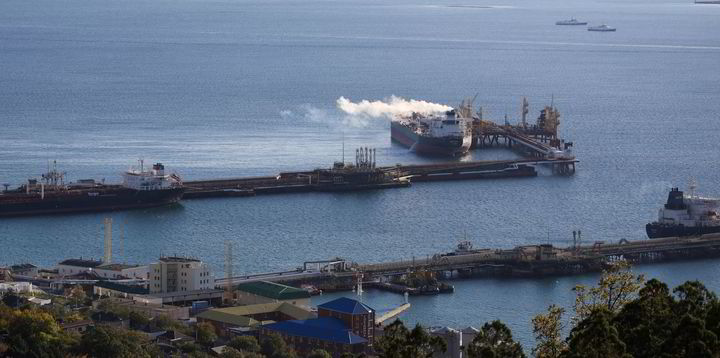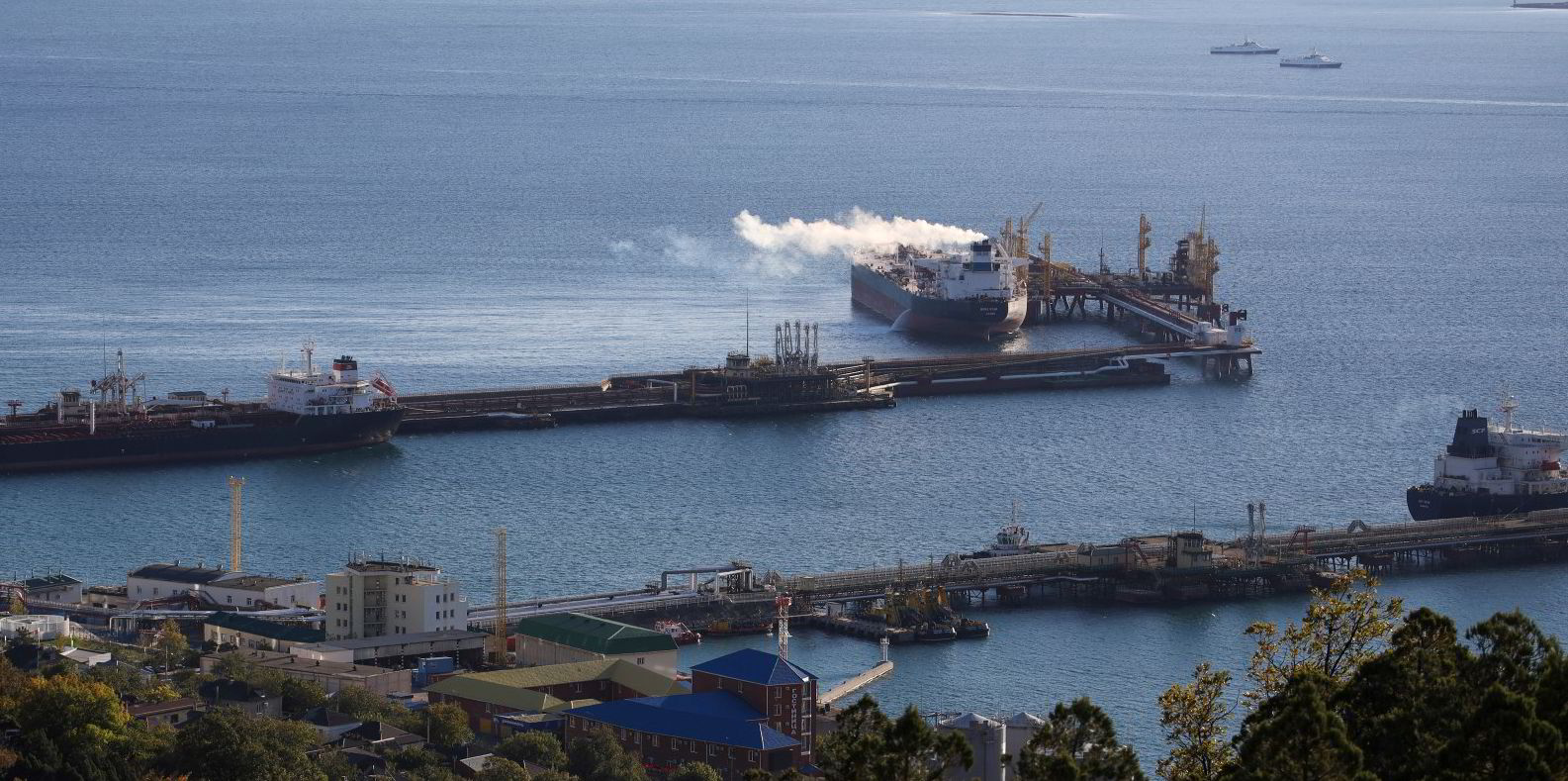Russian authorities have finally promised to open an investigation into a suspected oil spill near the Black Sea port of Novorossiysk that was spotted by residents on Monday, but had been causing a bad smell for weeks.
A prosecutor’s office at the Krasnodar region where the port is located said it is “checking the compliance with the requirements of environmental legislation in the implementation of port [loading] activities”.
After tip-offs from residents, Russia’s environmental protection agency, Rosprirodnadzor, said it had found “an iridescent spot of about 40 thousand square metres on the surface of the sea” that may have been a spill of oil and products.
However, Rosprirodnadzor has not directly linked the findings with the operations of the oil loading jetties at Novorossiysk, stating that the pollution was seen closer to a ship-container loading terminal.
Residents in Novorossiysk and in its nearby towns and villages have been on high alert this year. Complaints in social networking chats and registered with authorities report the often lingering smell of mercaptans.
Mercaptans are hydrocarbons containing sulphur. They also have an unpleasant smell described as rotten cabbage, corrosive properties in pipeline transmission and are poisonous to humans at high concentrations in the air.
Article continues below the advert
The number of tanker loadings at Novorossiysk doubled in March compared with February, to 725,000 barrels per day of Russian export Urals heavy and sour crude oil blend, according to Moscow-based industry journal Infotek.
Russian oil producers increased loadings to catch up with the previous month’s slowdown due to bad weather in the Black Sea.
Urals blend loadings at jetties in the port have been kept secret after the G7 approved price caps for Russian oil exports in December last year.
Earlier this month, the US warned international ship operators of the alleged spoofing of Automated Information System transmitters on board mainly older tankers that Russia reportedly chartered to carry its oil to offshore ship-to-ship reloading points, thus avoiding price cap regulations and international sanctions.
Caspian Pipeline denies blame
Complaints of an oil-linked smell along the coast prompted local authorities to hold a meeting with Novorossiysk port authorities, representatives of the Caspian Pipeline Consortium and environmental experts earlier this week.
The company’s pipeline carries a mercaptan-rich mixture of oil and condensate from Kazakhstan’s three largest producing projects — Tengiz, Kashagan and Karachaganak — and also some barrels of Russian origin, at a total estimated rate of 1.2 million bpd, to a dedicated terminal near Novorossiysk.
However, Caspian Pipeline environmental manager Arina Nikolayeva repeated earlier assurances from the company that its offshore tanker loading buoys cannot be the source of the “bad smell” and that the operator has not recorded any oil spills.
According to a recording of the meeting, posted on YouTube, Nikolayeva said the number of public complaints “peaked” earlier this month when the Caspian Pipeline terminal and its buoys were shut for several days for regular maintenance and no loadings took place.

